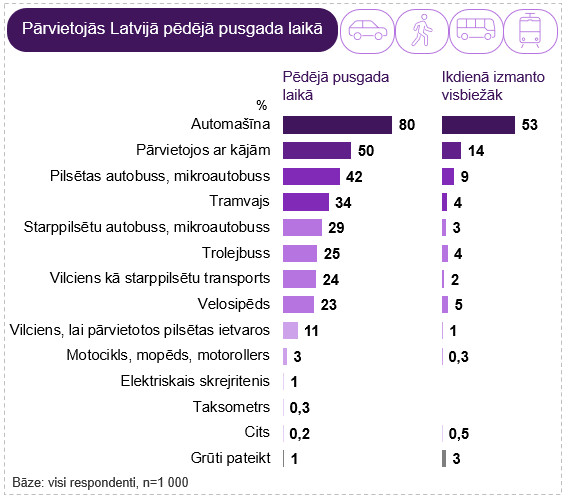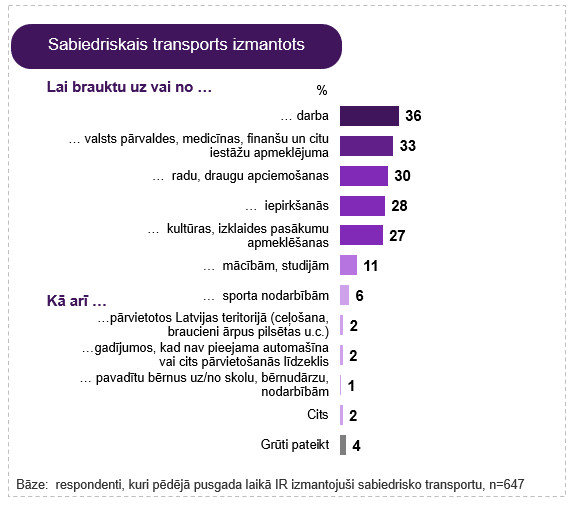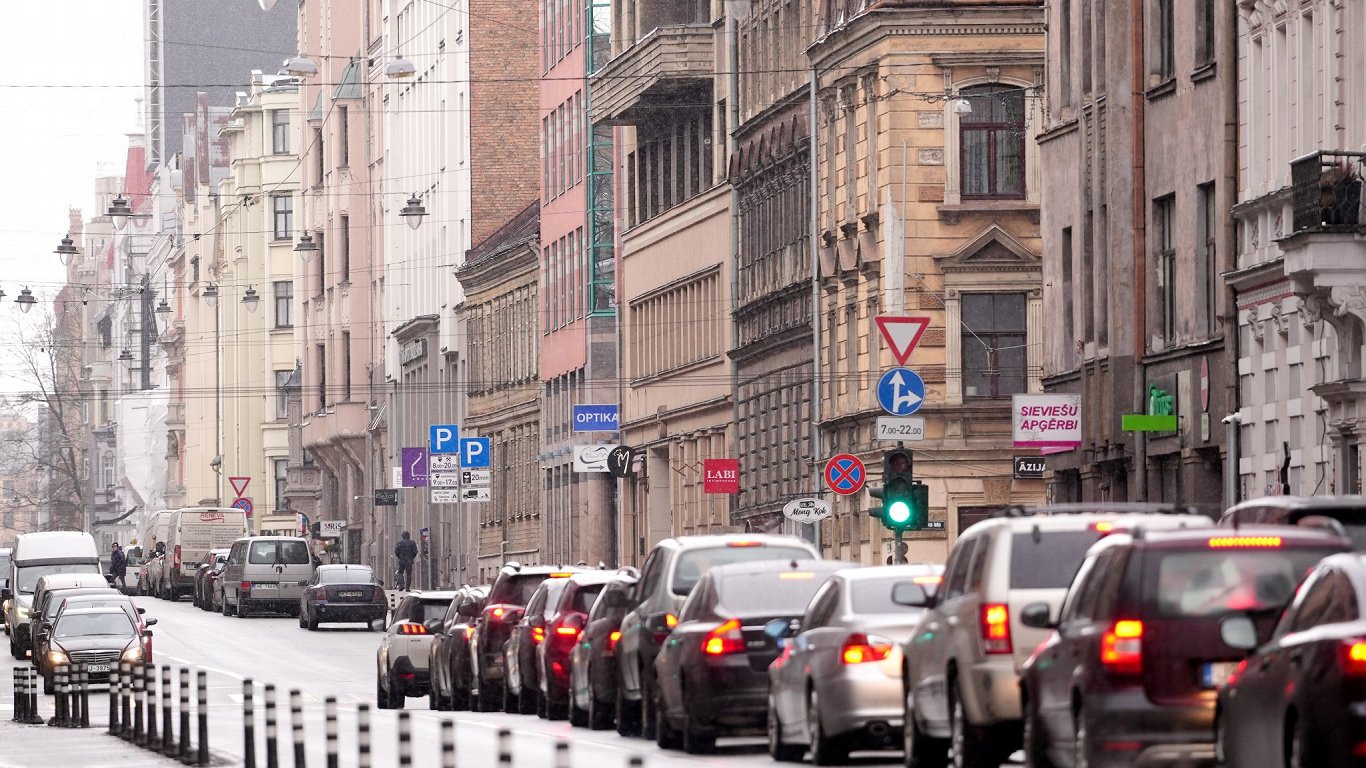According to the survey results, 22% of Latvian residents travel by public transport every day or almost every day, 12% – 3-4 times per week, and 15% – 1-2 times per week.
24% of residents travel by public transport a couple of times a month, and 26% of residents use public transport less frequently than once a month. 1% of respondents have no specific opinion on this issue.
Looking at the results in some sub-groups, it can be seen that over the past half-year, public transport has been used relatively more often by young people (18-24 years), women, Rīga residents, residents living alone, as well as students and pupils.
During the last half-year, public transport has been used relatively less frequently by men, residents aged 55-64, Vidzeme residents and Latgalians, people living in rural areas, as well as workers.
Among Latvian residents, cars are the most commonly used means of transport. The absolute majority or 80% of Latvian residents aged 16-65 have traveled by car in the last six months. For more than half (53%) of the population, the car is the most often chosen vehicle.
Overall, half (50%) of the population has moved on foot in the last half of the year, as well as relatively more often residents have moved by city bus, minibus (42%), tram (34%), intercity bus, minibus (29%), trolley bus (25%), train as intercity transport (24%), as well as bicycle (23%). Other modes of movement have been used significantly less frequently.

Car (53%), and walking (14%) are also among the most frequently used modes of travel in everyday life, followed by other modes of travel.

The survey involved 1,000 Latvian residents.




























